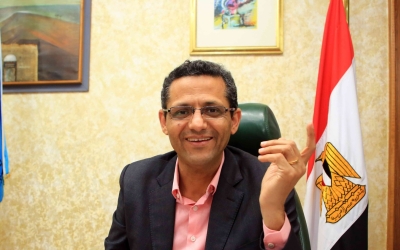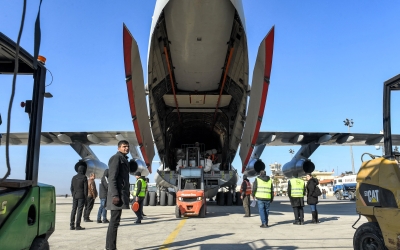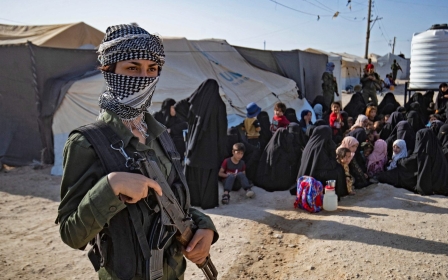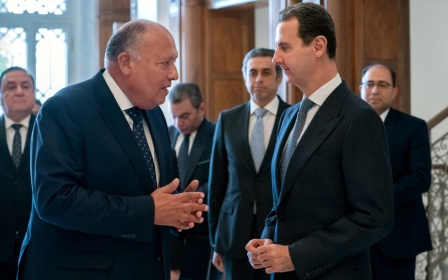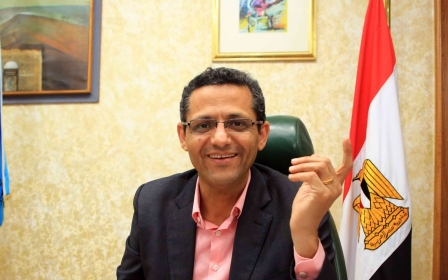Arabic press review: Egypt spy chief 'discusses Sisi election rivals' with opposition
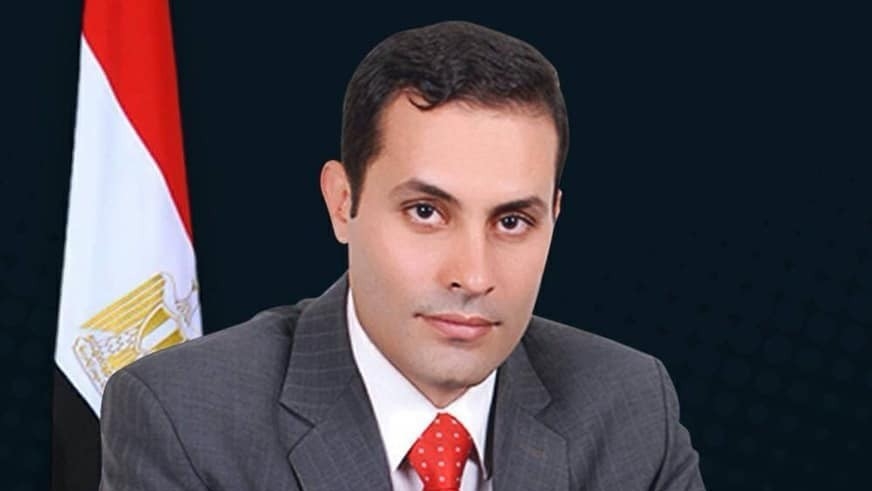
Egypt spy chief meets with Sisi opposition to 'select presidential election rivals'
The director of Egypt's intelligence agency has recently met with opposition politicians to discuss the selection of candidates to compete with President Abdel Fattah el-Sisi in the elections scheduled for next year, Arabi21 reported on Friday.
According to sources familiar with the meeting, Abbas Kamel, the head of Egypt's General Intelligence Agency and former head of Sisi's office, held a meeting with members of the Civil Democratic Movement last week to nominate three civilians to run for the elections, which will be held after the end of Sisi's term in June 2024.
"The circle close to Sisi, led by Kamel, began the journey of searching for competitors for Sisi in the upcoming elections, in light of Western reservations about the human rights situation in the country and pressures exerted by some Western and Gulf countries on the Sisi regime to open the public sphere and allow civil figures to run for the presidency, [rather than] to repeat what happened in 2018," the online newspaper quoted sources as saying.
"Kamel promised the representatives of the Civil Democratic Movement that if the three names are agreed upon, they will be assisted in collecting the necessary powers of attorney for candidacy, and will be allowed to appear in intelligence-affiliated media," the source said.
Article 2 of Resolution 22 of 2014, approving the law organising presidential elections, issued by former interim President Adly Mansour, stipulates that: "In order to accept the candidacy for the presidency of the republic, the candidate must be endorsed by at least 20 members of the House of Representatives, or supported by at least 25,000 citizens who have the right to vote in at least 15 governorates, with a minimum of 1,000 supporters from each of them. In all cases, it is not permissible to recommend or support more than one candidate."
The process of collecting votes stipulated in the Elections Law as a condition for candidacy is considered almost impossible, in light of the tight security grip imposed by the Sisi regime on all state institutions, which include the Ministry of Justice that documents the powers of attorney through its notary offices. Therefore, any candidate from outside the system attempting to collect these powers of attorney will face many difficulties and security restrictions.
Sisi was re-elected president in 2018 after garnering 97 percent of the vote in a race in which he ran virtually unchallenged after the other serious candidates were arrested or pulled out. His only opponent, Moussa Mostafa Moussa, who was one of his supporters, won 2.92 percent of the vote.
The latest report comes as one of Sisi's most outspoken critics, Ahmed Tantawy, has announced that he would return to Egypt in May to "carry out his role in introducing a civilian alternative" to Sisi. Tantawy, a former left-wing MP and senior member of Al-Karama party, left Egypt last year and has reportedly been based in Beirut after security agencies exercised pressure on him to refrain from criticising the Sisi government.
Russian diplomat says Ukraine is different from Iraq
The permanent representative of Russia to the United Nations, Ambassador Vasily Nebenzia, has denied that his country's invasion of Ukraine is similar to the 2003 US-led invasion of Iraq "because Iraq is 5,000 miles away from America, and [did] not threaten American national security", according to Al-Quds Al-Arabi newspaper.
"The Ukrainian threat was real and the proxy wars through Ukraine were real. The decision to carry out the special military operation was based on geopolitical considerations, and things were happening near Russia," he added.
The Russian ambassador also took the opportunity to stress that Moscow "always stands with the Palestinians and supports a just solution to the Palestinian issue".
"We don't go soft on Israel's policies against the Palestinians. There is no one who is tougher on Israel than we are," Nebenzia told the London-based newspaper during a press conference on Monday at the UN headquarters in New York.
"We have always called for a just solution to the Palestinian issue. We always tell the truth as it is. We have never tried to justify what Israel is doing in Palestine."
"We have always said that the recent rapprochement between Israel and some Middle Eastern countries should never overshadow the original issue and the mother of issues, which is the solution of the Israeli-Palestinian conflict," he added.
Syrian official 'secretly visited Saudi Arabia'
Maher al-Assad, the brother of the Syrian president, visited Saudi Arabia last week to normalise relations between the two countries, according to the Kuwaiti newspaper Al-Jarida.
The newspaper reported that the visit is "of a purely security nature" and concerns the need for Damascus to combat drug smuggling and manufacturing operations, in addition to following up on the border control issue. The visit was part of Maher's job as head of the "fourth division" in the Syrian army, which controls land border crossings.
The Kuwaiti newspaper pointed out that Maher al-Assad's visit comes after the visit of the head of the Syrian intelligence service, Hossam Luqa, to Riyadh months ago, during which he met with the head of Saudi intelligence, Khaled Al-Humaidan.
On 8 March, Saudi Foreign Minister Faisal bin Farhan said that increasing communication with Syria could pave the way for its return to the Arab League as relations improve after more than 10 years of isolation, but it is too early at the moment to discuss such a step.
The Saudi minister reiterated that there is a growing consensus in the Arab world that isolating Syria does not work, and that dialogue with Damascus is especially necessary to address the humanitarian situation there.
The Arab League suspended Syria's membership in 2011.
On Friday, Reuters reported that Saudi Arabia and Syria have agreed to reopen their embassies after an 11-year freeze in diplomatic relations.
The two governments are "preparing to reopen embassies after Eid al-Fitr", a government source told Reuters, referring to the celebration marking the end of the holy month of Ramadan.
The move comes in the wake of the re-establishment of ties between Saudi Arabia and Iran, Syria's closest ally in the region, earlier this month.
According to a regional source and a diplomat in the Gulf who spoke to Reuters, the decision was the result of talks in Saudi Arabia with a senior Syrian intelligence official.
Iraq: Helicopters to take part in arresting tribal suspects
Iraq will allocate helicopters to help with the carrying out of arrest warrants against those wanted in tribal conflicts, according to the New Arab newspaper.
Iraqi Interior Minister Abdul Amir al-Shammari has issued a decision to allocate three military helicopters to arrest the wanted members of the tribes, especially those in remote areas difficult to reach, unnamed security sources told the paper.
"The most wanted from the clans are treated as wanted on terrorism charges, and not waiting for a complaint from one of the parties to carry out legal procedures against the perpetrators," the source said.
*Arabic press review is a digest of news reports not independently verified as accurate by Middle East Eye.
Middle East Eye propose une couverture et une analyse indépendantes et incomparables du Moyen-Orient, de l’Afrique du Nord et d’autres régions du monde. Pour en savoir plus sur la reprise de ce contenu et les frais qui s’appliquent, veuillez remplir ce formulaire [en anglais]. Pour en savoir plus sur MEE, cliquez ici [en anglais].


